"There are moments — increasingly rare in risk-abhorrent modern campaigns — when politicians are called upon to bare their fundamental beliefs. In the best of these moments, the speaker does not just salve the current political wound, but also illuminates larger, troubling issues that the nation is wrestling with.Maureen Dowd, the provocative and sometimes contentious overly feminist leaning NY Times columnist said in her reactive piece Black & White & Gray:
Inaugural addresses by Abraham Lincoln and Franklin D. Roosevelt come to mind, as does John F. Kennedy’s 1960 speech on religion, with its enduring vision of the separation between church and state. Senator Barack Obama, who has not faced such tests of character this year, faced one on Tuesday. It is hard to imagine how he could have handled it better."
Other scholarly comments were collected in the NY Times report: An Effort to Bridge the Divide:"In many ways, Barack Obama’s speech on race was momentous and edifying.
You could tell it was personal, that he had worked hard on it, all weekend and into the wee hours Tuesday. Overriding aides who objected to putting race center stage, he addressed a painful, difficult subject straightforwardly with a subtlety and decency rare in American politics....
...A little disenchantment with Obama could turn out to be a good thing. Too much idealism can blind a leader to reality as surely as too much ideology can. He should be congratulated on the disappearance of the pedestal. Leaders don’t need to be messiahs. Gray is a welcome relief from black and white.
The speech violated several conventions of campaign discourse — for one, the injunction that all politicians must speak about racial and ethnic groups in upbeat stereotypes. “He didn’t romanticize us,” said Melissa Harris-Lacewell, a professor of Politics and African-American Studies at Princeton University, who used to attend services at Mr. Wright’s church, Trinity United Church of Christ, when she lived in Chicago.
“We’re brilliant, and we’re stupid,” she said, echoing Mr. Obama. “We’re hopeful, and we’re angry.”The Washington Post's Eugene Robinson's piece titled: Obama's Road Map on Race
"Once again, the conventional wisdom proved stunningly unwise. Barack Obama was supposed to be on his heels, forced into a backpedaling, defensive crouch after racially charged remarks by his former pastor, delivered from the pulpit years ago, suddenly became the hottest story of the presidential campaign. But instead of running away, Obama issued a challenge to those who would exploit the issue of race: Bring it on.The Chicago Tribune's John Kass wrote in his op-ed; "Obama sounds presidential but speech isn't about race"
Yesterday morning, in what may be remembered as a landmark speech regardless of who becomes the next president, Obama established new parameters for a dialogue on race in America that might actually lead somewhere -- that might break out of the sour stasis of grievance and countergrievance, of insensitivity and hypersensitivity, of mutual mistrust...
Sen. Barack Obama not only confronted race in his speech Tuesday, he transcended it, and no honest American ear could ever be immune to the pitch, tone and quality of his words; not yours, not mine.The LA Times's Tim Rutten's piece: Obama's Lincoln Moment,
So much of what he said was undeniable and true and honestly spoken, in the calm and clear voice of a reasonable man explaining America's most unreasonable and hateful topic.
The lawyer was Abraham Lincoln, and the speech was the famous"House Divided" address with which he accepted the Republican Party's nomination as a candidate for the U.S. Senate. Lincoln lost to Stephen Douglas, but the address changed the national conversation on slavery and, two years later, Lincoln was on his way from Springfield to the White House.On the news front Senator Clinton earned Congressman John Murtha's endorsement today bringing her to 245 to Obama's 210.
America's political story is studded with such addresses -- historical signposts that divide that which went before from all that followed on an issue of crucial national importance. Franklin Roosevelt's "The only thing we have to fear is fear itself" speech fundamentally changed Americans' expectations of their government in times of social and economic crisis. John F. Kennedy's address on Catholicism and politics to the Greater Houston Ministerial Assn. in 1960 forever altered the way we think about religion and public office.
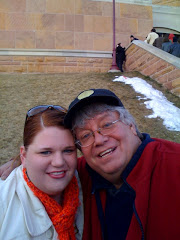

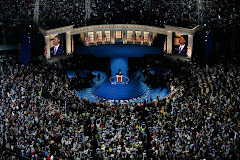
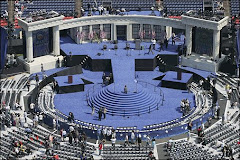
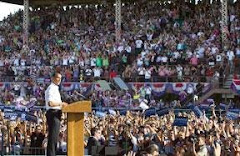
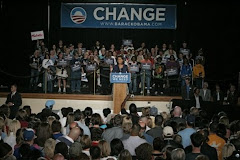
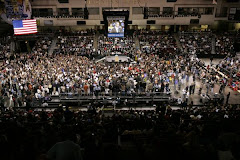

No comments:
Post a Comment